Photographs: Courtesy: IBM
Cray 1, released in 1975, is considered to be the first real supercomputer. Supercomputers were designed primarily by Seymour Cray, who started his own firm Cray Research Inc.
Supercomputers are used for highly calculation-intensive tasks such as problems involving quantum physics, weather forecasting, climate research, molecular modeling and physical simulations.
Today's supercomputers eventually turn into tomorrow's ordinary computers. Work is on to build the fastest supercomputer by 2018. Businessinsider gives a list of the world's 16 most mind boggling super computers...
The Exa-Scale Computer
Slated to be the world's most powerful supercomputer, an exa-scale computer would be 1000 times faster than the fastest supercomputer today.
It is likely to be operational by 2018- 2020. It can count every star in the universe in 20 minutes.
Exascale computing is a 21st-century attempt to move computing capabilities beyond the existing, successful petascale.
World's 16 smartest computers
Image: Gene/Q Mira.IBM will beat China's super machine, Tianhe-1A by 2012 with Gene/Q "Mira".
A 10 peta-flop computer, it will be four times faster that the Tianhe-1A.
The US Department of Energy's (DOE) Argonne National Laboratory will use this machine to work on ultra-efficient electric car batteries, understanding global climate change and exploring the evolution of the universe.
World's 16 smartest computers
Image: Tianhe-1A.The world's fastest supercomputer Tianhe-1A has a speed of 2.5 petaflops per-second.
China's Tianhe-1A can now reach performance levels 43 percent faster than any other supercomputer.
The Tianhe (Sky River) is used to carry out computations for petroleum exploration and aircraft simulation.
Tianhe-1 and Nebulae are both hybrid designs with Intel Xeon processors and AMD or NVidia GPUs used as accelerators. Each node of Tianhe-1 consists of two AMD GPUs attached to two Intel Xeon processors.
World's 16 smartest computers
Image: Jaguar.Created in 2009, America's best supercomputer and the second fastest in the world, it achieves 1.75 petaflops per second.
Build by the Cray company, it is located at the Department of Energy's Oak Ridge Leadership Computing Facility.
It can do as many calculations in a day as a normal computer can in 100 years.
World's 16 smartest computers
Image: Nebulae.The third fastest super computer, Nebulae was built in 2009.
China stormed to the supercomputing arena with Nebulae build from a Dawning TC3600 Blade system with Intel X5650 processors and NVidia Tesla C2050 GPUs.
It can be easily reconfigured for different tasks compared to its counterparts.
World's 16 smartest computers
Image: Tsubame 2.0.Japan's Tsubame 2.0 is the fourth fastest supercomputer in the world and the fastest in Japan.
Built in 2010, it is located at The Tokyo Institute of Technology. The computer can calculate 2,400 trillion times per second, or 12 times faster than a supercomputer at the Japan Atomic Energy Agency.
World's 16 smartest computers
Image: Hopper.World's 16 smartest computers
Image: Falcon Northwest.World's 16 smartest computers
Image: IBM Deep Blue.Created in 1997, it is the fastest computer to ever play chess.
The machine beat world champion Garry Kasparov when it won a six-game match on May 11, 1997.
Kasparov accused IBM of cheating and demanded a rematch, but IBM refused and dismantled Deep Blue. Kasparov had beaten a previous version of Deep Blue in 1996.
World's 16 smartest computers
Image: Deep Rybka 3.Rybka is a computer chess engine designed by International Master Vasik Rajlich.
One of the top-rated engines on chess engine rating lists, it has won many Computer Chess Tournaments including the 2007, 2008, 2009, and 2010 World Computer Chess Championships.
Rybka supports both single processor and symmetric multiprocessing (SMP) systems.
World's 16 smartest computers
Image: Stratus and Cirrus.World's 16 smartest computers
Image: Watson.World's 16 smartest computers
Image: Kraken.World's 16 smartest computers
Image: Connection Machine 5.The CM-5 in the film is one of only two built by the Thinking Machine Company -- one is at Los Alamos and the other, in the movie, was sold to the NSA.
This computer can achieve 65.5 gigaflops of computations per second.
The Connection Machine was originally intended for applications in artificial intelligence and symbolic processing, but later versions found greater success in the field of computational science.
World's 16 smartest computers
Image: Integrated Silicon Nanophotonics Computer Chip.Hailed as the biggest supercomputer breakthrough, the chip was developed in a span of ten years.
IBM anticipates that Silicon Nanophotonics will dramatically increase the speed and performance between chips, and further the company's ambitious Exascale computing program, which is aimed at developing a supercomputer that can perform one million trillion calculations-or an Exaflop-in a single second.
An Exascale supercomputer will be approximately one thousand times faster than the fastest machine today.
World's 16 smartest computers
Image: Quantum Computing.The next biggest supercomputer breakthrough, Quantum Computer is still in the testing phase.
Quantum computers use the power of atoms to perform memory and processing tasks.

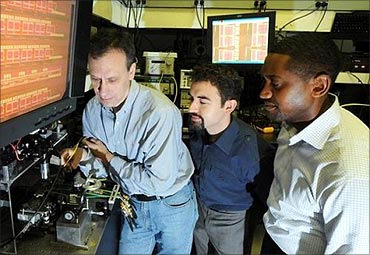

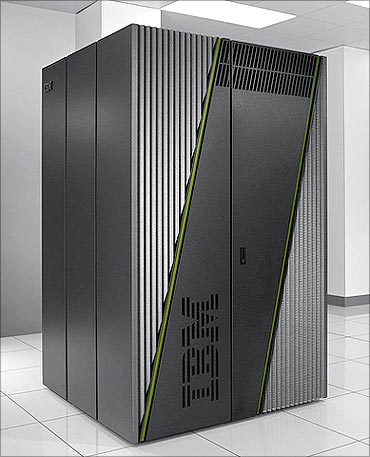
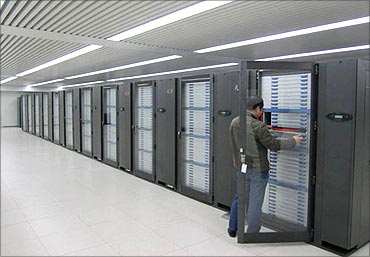
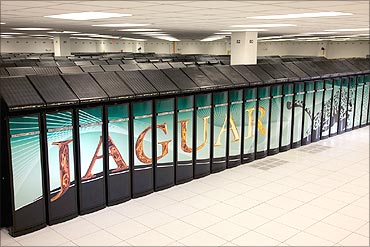
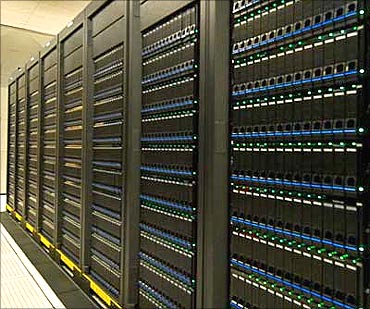
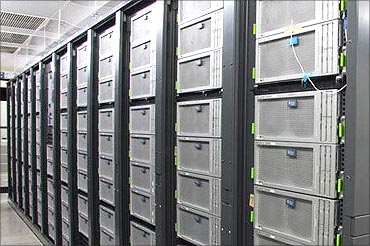
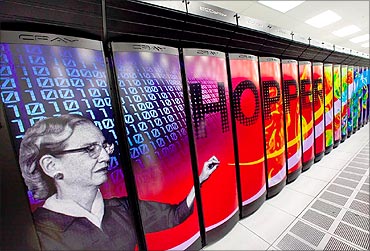
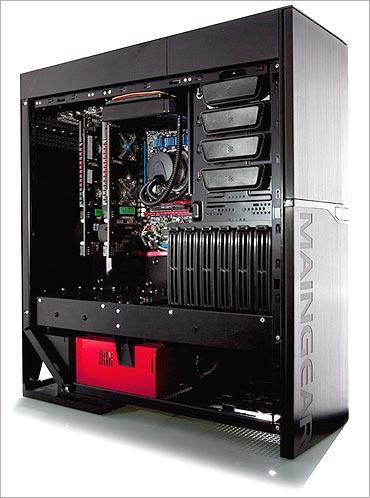
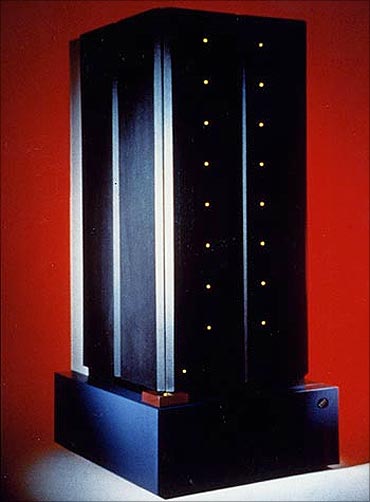
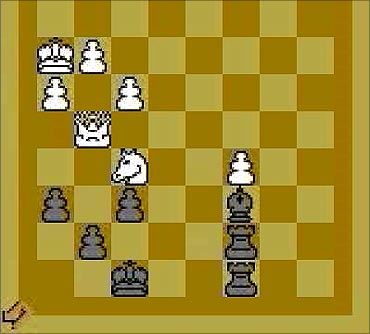
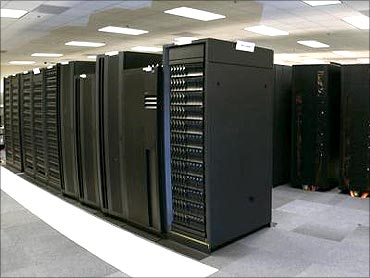
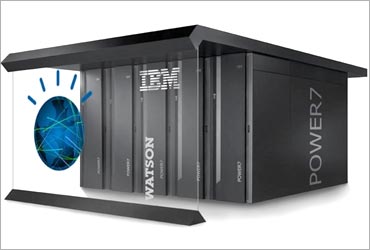
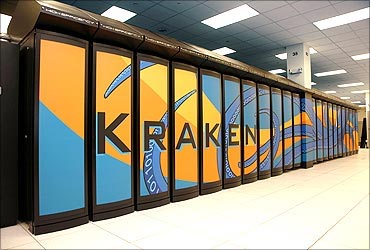
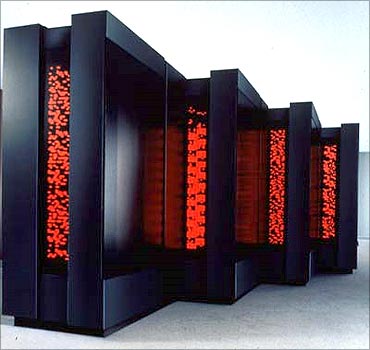
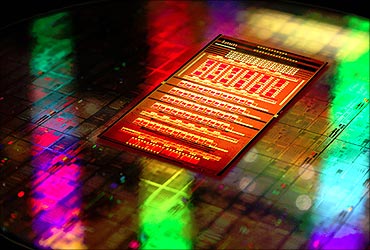
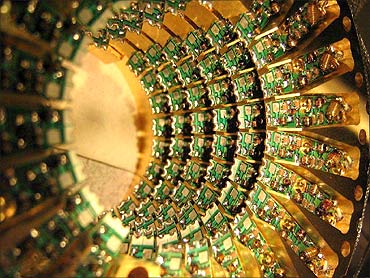
article